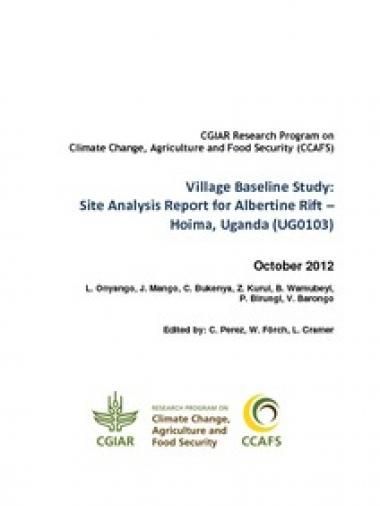Village Baseline Study: Site Analysis Report for Albertine Rift – Hoima, Uganda

The village baseline study of Kibaire village in the CCAFS benchmark site Hoima in Uganda took place from 13 to 16 July 2011. Forests are exploited at unsustainable levels in Kibaire but deforestation does not appear to be a serious threat because the tree population is still relatively high. Most of the forests have been leased to private individuals as part of the privatisation policy being implemented in Uganda. Wetlands are also increasingly subjected to overexploitation and pollution from brewing and other activities. Farming at both subsistence and commercial level is increasing at the expense of forests. Community access to forest resources is restricted.
Participants identified 29 organisations working in the community, two-third of them operating from outside the locality. Participants said that they did have plenty of food in the village, and women expressed that they had never had a food crisis. Nonetheless, half of the organisations men and women identified were involved in some form of food security related activity, and notably food availability. Less than one-third of the organisations addressed natural resources management, and most of them were from outside the community.
Organisations are the most significant source of information on agriculture. Farmers also get information through the many radio stations in the area that air many programs in local languages.
Citation
Onyango L, Mango J, Bukenya C, Kurui Z, Wamubeyi B, Birungi P, Barongo V. 2012. Village Baseline Study: Site Analysis Report for Albertine Rift – Hoima, Uganda. Copenhagen, Denmark: CGIAR Research Program on Climate Change, Agriculture and Food Security (CCAFS).